What is the best way to preserve home grown tomatoes….oven-dried or with a dehydrator? Should you use roma tomatoes, slicers or plum types of tomatoes for dehydrating? Here are some detailed tips and tricks to get the best homemade sundried tomatoes with robust flavor for all your Winter recipes.
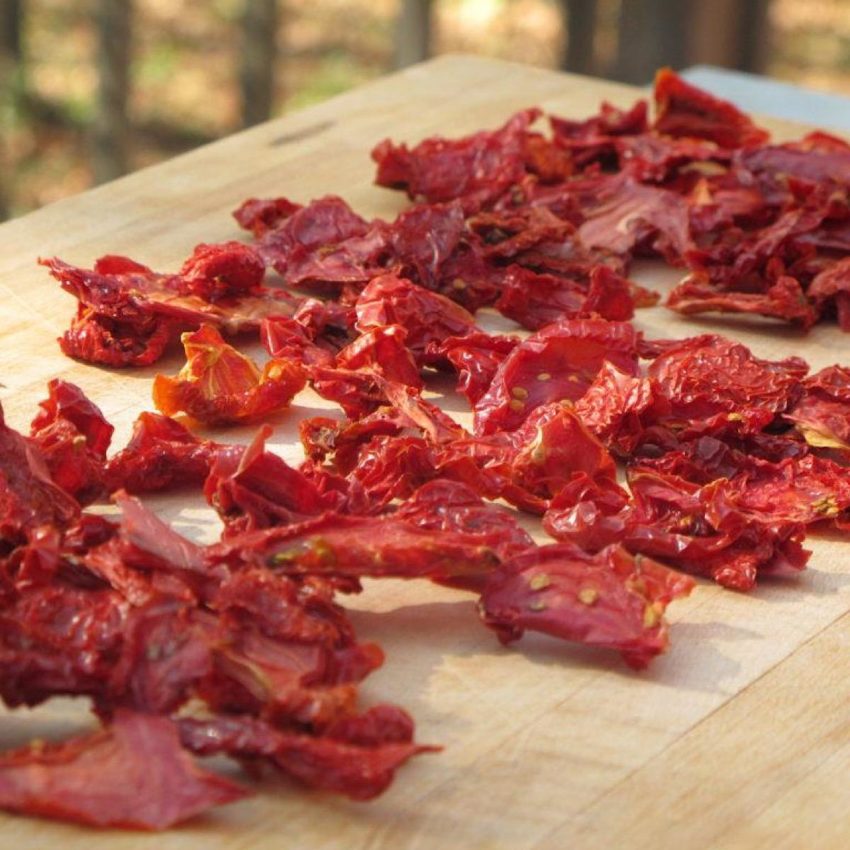
Jump to: Getting Flavor | Oven Drying vs Dehydrator | 9 Key Steps to Drying Tomatoes |How to Use Sun Dried Tomatoes
This post may contain affiliate links. As an Amazon Associate, I also earn from qualifying purchases. You can read our disclosure information here–
Use Fully Ripe Tomatoes for Best Flavor When Dried
Every year is a bit different and every climate zone is a bit different so you want to time your harvest around an impending frost and a shorter day length. This means paying attention to your local weather reports for frost predictions.
Impending frost is the most important variable, but it is also important to understand the relationship of the growth cycle to daylength.
Harvesting after a frost equals mushy tomatoes. Harvesting with short daylengths means they might not develop their sugars in the same way (i.e., it’s going to take longer).
Once harvested, the tomatoes may develop a deeper color while resting on your counter, but they won’t develop their sugars any further, so just be aware that they may turn red but you won’t necessarily get that great homegrown flavor.
The visual appeal of a bright red dried tomato however is much more appealing than pale pink or green tomatoes. We do eat with our eyes also, so it is worth allowing the late-harvested tomatoes to color up before drying.
How to Dry Tomatoes at Home
So, on to process. I have done oven-drying, sun-drying and drying with the food dehydrator and for me, the food dehydrator wins hands down.
Oven drying works, but the tomatoes come out quite dark in color and the texture is more difficult to manage. They will often become way too brittle.
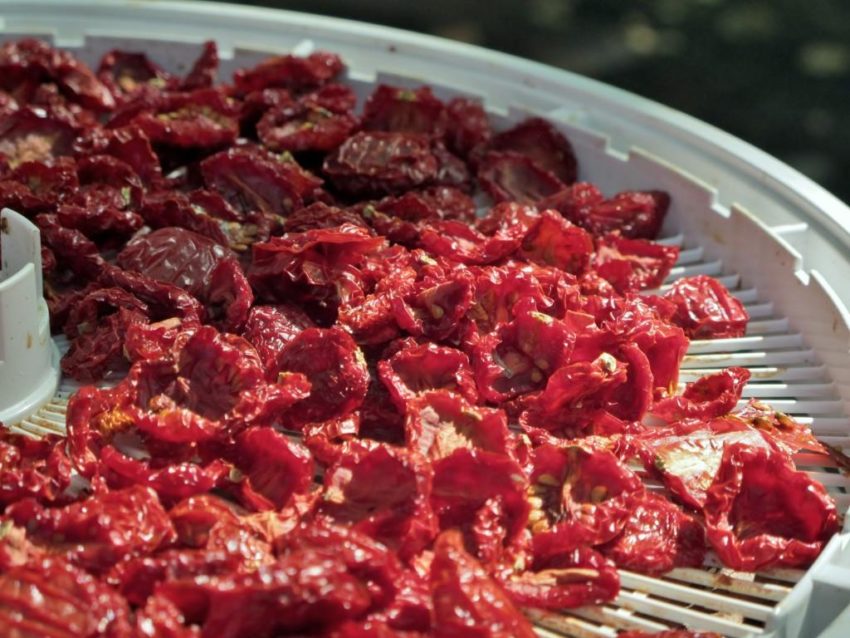
Here is a quick rundown on process tips for both oven-drying and using the dehydrator:
How to Make Homemade Sun-Dried Tomatoes
HOW TO DRY HOMEGROWN TOMATOES FOR WINTER
- How to Cut and Size Tomatoes for Drying
Adapt your slice and dice to the type of tomato you have. If it is a plum tomato or a cherry, just cut in half and place them sliced side down on your dehydrator tray or your cookie sheet if oven drying. If it is a beefsteak or roma tomato, slice the tomato thickly and then cut slices in half (these will shrivel to bite-size.
- Should You Remove the Seeds?
Sometimes seeds can add a richer dimension to a dish, especially if you are blending tomatoes in a sauce or soup. If you are adding tomatoes to a salad, salsa or casserole it is best to remove the seed or your dish may turn out gooey or watery. For dehydrating, I leave the seeds in for the richer umami flavor.
- Adding Oil and/or Salt Before Drying
Many people will oil and salt their tomatoes before drying. I don’t do either because I sell them at market and people have different tastes and needs when it comes to oil and salt. For home use, I will add the salt to the dish rather than the tomatoes.
- Temperature and Air Circulation
Dried tomatoes need not only the heat, but also good air circulation. If drying in an oven, turn the heat on to about 200 degrees and crack open the oven door. A convection oven works best due to the circulation. If drying in a food dehydrator, I turn the heat on to 135 degrees for the first 5-10 hours and then decrease it when they have dried to a point where they are almost ready but still a little soft to the touch.

- Length of Time in Oven or Dehydrator
This is hugely variable. It is going to depend on the type of tomatoes you use and the type of heat/air source you are using. The only thing for sure is that it takes quite a long time. I frequently leave my dehydrator on overnight and then finish them off at a lower heat for a few hours in the morning. You just have to keep checking them the first time you do it to see how your heat source works. Check every hour or two by feeling them. Two key factors: they should end up pliable-not brittle, and they should not have any moistness to the flesh (or they will mold later).
- Remove in Stages from Tray or Pan
The tomatoes are all different (just like us) in terms of ripeness, how you cut them, where they lay on the cookie sheet, etc. You need to remove the ones that are done (to a countertop to cool) and leave the others to finish.
- How to Store
I store mine in breathable plastic bags. I know some people will store them in oil in the refrigerator, but my refrigerator is much too full of leftovers, etc. for that and the oil will go rancid if you leave it out. If you store them in oil, be aware that the oil will get murky in the fridge and them clear up when you get it back to room temp.
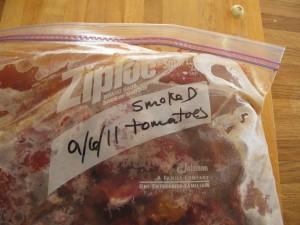
- How to Use Sun-Dried Tomatoes in Winter
Dried tomatoes can be used in so many delicious ways (I’m sure there are many blogs about this!). Rehydrate them in warm water, toss them in a tomato sauce to slowly rehydrate, cut them up dried and toss in a salad, or munch on them as-is for a great snack.

- Which type of Tomatoes Dry Best?
Choose the meatiest tomatoes you can find or you will get a lot of dried tomato skin and they will be much more brittle. The very best tomato for drying is the Principe Borghese heirloom. It is a plum-size tomato with a lot of meaty flesh, a lot of bold taste, and just the right size for drying. Romas and some globe tomatoes are quite meaty and will dry well, but they just don’t have as much taste as the Principe. Beefsteak tomatoes are usually pretty juicy and are difficult (not impossible) to dry.
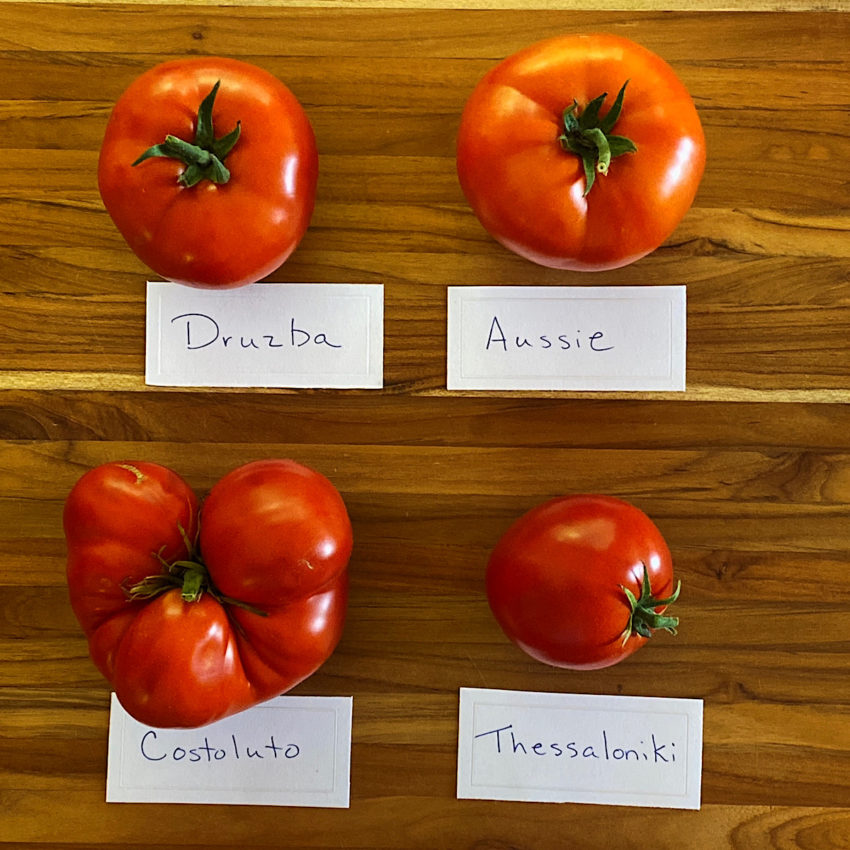
Ideas for Using “Sun-Dried“ Tomatoes in Cooking
Sally Swift, from the Splendid Table’s How to Eat Weekends blog, had a really interesting way of using dried tomatoes. I haven’t tried it yet, but I plan to very soon.
She said: “If you need great tomato taste ASAP, chop them into pieces and doctor them with a dash of fish sauce. Taste and add sugar, and maybe even a little vinegar to get the high notes.
The fish sauce brings a meaty umph and the sugar and vinegar bring out the highs and lows. ” Yum, sounds good to me.
Here are three of my favorite ways to use homemade sun-dried tomatoes:
- crockpot chile.
- sun-dried tomato butter and then freeze it for Winter
- A low carb spaghetti squash side dish with chopped sun-dried tomatoes
Cheers ……….Dorothy
Online Diet/Health Coaching:
Although I am not currently taking clients for diet & health coaching, I was a coach for many years with the online service called coach.me. It is a great platform for all kinds of coaching – anything from specific diets, writing a blog, getting up early, or getting rid of that pesky procrastination.
There are some wonderful coaches and the testimonials will tell you what you need to know. Contact me at [email protected] to get a referral to some of the tested, experienced online coaches on Coach.me.

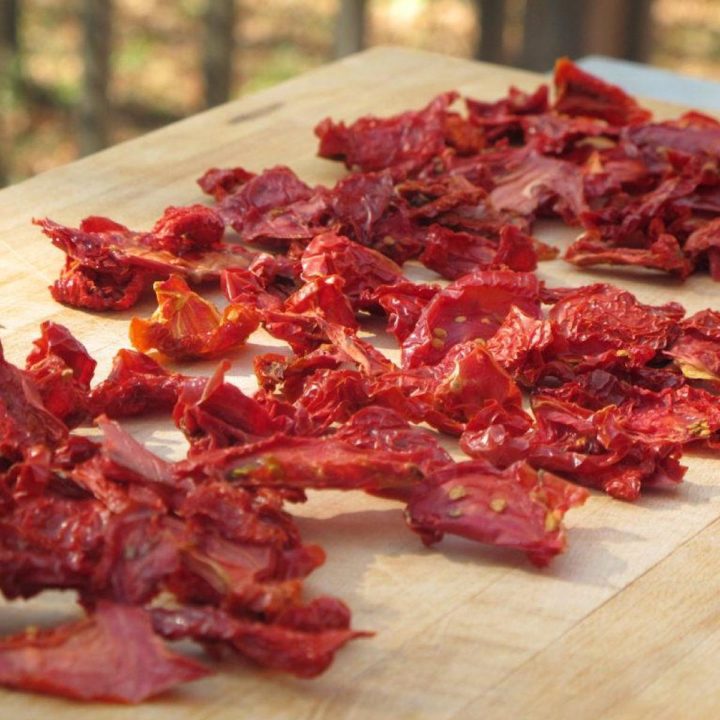

[…] you want step by step on how to dry your own, see this post at thefarmtojar […]
[…] state in a jar or zip lock bag. For detailed information on how to dry your own, visit thefarmtojar blog associated with this blog. Too often I’ve only used sun-dried tomatoes when a recipe I […]
As soon as I at first left a comment I clicked on the Notify me whenever new comments are added checkbox and now each and every time a comment is added I receive 4 email messages with the exact same comment.
I’m so sorry! I am looking into it at this end to see if it is happening to everyone. When I tried to email you privately, the email did not work. I definitely want to fix any annoyances in the comment page so please let me know if it is still a problem
I got this website from my pal who informed me concerning this website and now this time
I am browsing this site and reading very informative articles at this place.
Thank you!!
[…] For a how-to on drying tomatoes see this post. […]
[…] paste to get the more robust flavor, but sun-dried tomatoes can be a great substitute. For a how-to on drying your own tomatoes see this […]
[…] for winter, you can dry tomatoes in a food dehydrator (or the sun depending on where you live). Click here for details on how to dry tomatoes, and recommendations on which tomato varieties are best for […]
[…] Any kind of meaty tomato can be dried in a dehydrator, or the sun for that matter. Smaller plum types of tomatoes, however tend to dry more easily and keep the intensity of flavor. For a short tutorial on how to dry tomatoes, click here. […]
help my tomatoes have been in the dehydrator for over 24 hrs some are crunchy but most are pliable so I cant make powder out of them now what do I do
Yes, they do get done in phases rather than all at the same time. It depends on the thickness of the skin and the thickness of the cut. Different varieties behave differently, as do different dehydrators. Take out the crunchy ones and set aside and then keep drying the other ones. Sometimes mine do take longer than 24 hours also. It is not an exact science for sure!
Can these be stored in the freezer?
Yes they can. Just make sure they are in an airtight freezer bag or something that will prevent any moisture from getting in. If they are dried all the way however there is no need to store in the freezer. Just keep them in the pantry until ready to rehydrate. They don’t go bad if they are dried.